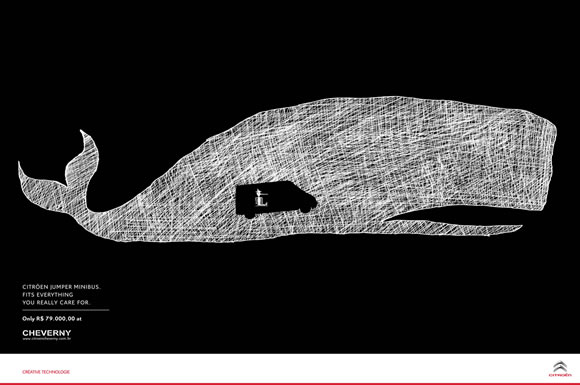Why there is no Indian Steve Jobs[Image] tweet21 Email Print Topics:Stocks Mail Today, On Monday 10 October 2011, 3:58 PMVIRTUALLY every Saturday, Ajai Chowdhry, chairman and CEO of HCL Infosystems and one of the six co-founders of India's oldest computer company, HCL, spends a few hours listening to wannabe entrepreneurs. He listens to their ideas, looks at their business models and considers their pitches. Every once in a while, if he comes across an idea that interests or excites him, he goes a step further. He, and a few other senior executives like him, then ensure that that particular wannabe entrepreneur can manage to make the transition to actual entrepreneur.They help out with critical start-up funding. But much more than money, they offer what these entrepreneurs really need and what they cannot find in any business school or bank. They offer mentoring and advice and the wisdom learnt through their experience of having walked this path earlier, on their own.HistoryIt's hard work, and consumes a lot of what every busy chief executive like Chowdhry is most short of — time. But he, and the dozens of other successful businessmen who form the Indian Angel Network, know that this is the critical difference between a dream staying on paper and the dream turning into reality.Ajai Chowdhry should know that better than most. In 1976, his colleague in the Delhi Cloth Mills ( DCM), Shiv Nadar, had talked him, and four other colleagues and friends, into quitting DCM and starting their own computer company. Hindustan Computers Limited, as it was then known, managed to ship its first home designed, home- built microcomputer in 1978. Around the same time that a Syrian-American college drop-out called Steve Jobs had shipped his first microcomputer — the Macintosh.This was the predecessor of the PC. But IBM was to lay claim to that term, and make it its own, a full three years later, when it managed to roll out its first desktop PC. IBM, of course, took a different route to becoming the world's largest technology company. And Jobs took Apple on a different journey altogether, making it arguably the world's most inventive technology company, and eventually the world's most valuable one. Period.But what of HCL? Just imagine. Thirty six years ago, all three companies were virtually at the same point in the industry's lifecycle. Apple and HCL, in fact, were so similar, they could have been twins. Jobs started Apple in a garage.Nadar, Chowdhry and their friends started their company in a south Delhi ' barsati'. Apple took an off- the- shelf microprocessor and built a computer around it. And then developed the software to make it run. HCL took an off- the- shelf microprocessor and built a computer around it. And then wrote the software to make it run. At virtually the same time.Nearly four decades later, the picture has changed dramatically. Today, HCL is admittedly a very successful company. It has revenues in excess of $ 6 billion and is among the top five players in the country in all the sectors that it operates in.DifferenceBut look at Apple. Apple recorded net sales ( in 2010) of over $ 65 billion. In the stock market, at $ 350 billion, Apple is nearly a hundred times more valuable than HCL. It is not just the top player in its segments in the US — it is the top player in the world.What happened? Why did HCL get left behind, while Apple managed to surge ahead unstoppably? What was the ' X' factor which powered Apple to such heights? Apple fans would unhesitatingly say: Steve Jobs. Yes, the man was a genius.True, he had the uncanny ability to visualise not just what the consumer would want, but what the consumer would lust after, what the consumer would lose sleep over and what the consumer would be willing to queue up for hours and days in sun and rain to buy. There has never been an entrepreneur quite like him. Arguably, there never might be an entrepreneur quite like him again.But if Apple and Jobs were in a special league, it does not mean that HCL was not something special too. It too was a powerhouse of invention. Not only did HCL develop a microcomputer at the same time as Apple or a desktop PC three years ahead of IBM. They continued to invent. HCL developed a working UNIX computer years ahead of Sun and its own relational database management system ( RDBMS) ahead of Oracle. In 1981, HCL's Shiv Nadar funded two college dorm- mates who started a fledgling information technology training company called NIIT. Nevertheless, there was one key element which was different, the reason why Apple and Sun and IBM and Oracle became the kind of global giants that they are and the reason why HCL's growth was stunted.The difference was that HCL was an Indian company, working in Indian conditions.The others were all American. And the ecosystem available to HCL and its American counterparts was incomparably different.The very factor which helped create HCL may have helped to choke it, and companies like it. In 1977, George Fernandes' quirky nationalism drove IBM out of India, opening the doors for HCL. But over the next 13 years — the unlucky 13 perhaps — before reforms started, government regulations and the licence permit Raj ensured that HCL was left comprehensively behind. It could not make enough computers to meet demand, because it didn't have the licence to produce the extra number.When it got the licence, it could not import the components needed, because foreign exchange was short and you needed a separate permit for precious foreign exchange. It could not move into other markets abroad because that was controlled too. And so on.HCL can justifiably blame the lack of reforms for its lack of growth. But for hundreds of thousands of would- be inventors and entrepreneurs, there are still as many and equally insuperable hurdles, in their way. From a Kerala inventor reduced to sending emails to journalists about his heat exchanger which does the work of an AC at a hundredth the cost, to the son of a Gujarat potter whose ' rural fridge' wins him global awards and recognition, but no help in product ionising it, the lack of an ecosystem which encourages and supports innovation and enterprise is killing off the vision of thousands of Indian Steve Jobs before they can be turned to reality.LessonThat is the real lesson we can learn from looking at the life of Steve Jobs. Jobs was what he was because he was Steve Jobs — a genius. But Apple became Apple because it managed to find an environment where the company could convert its ideas into reality and reap adequate reward for its inventiveness.What if Jobs had decided to stay on in India after his 1974 visit? What if he had started Apple in India, not the US? Could a college drop- out have managed to get the funding to start a company? Would anybody have taken the technology developed by a non- graduate seriously? The answer is obvious. It is not just enough to be inventive or even entrepreneurial.Without a viable ecosystem which encourages new ideas, is genuinely open to competition and one which rewards intellectual innovation adequately, we would never be able to boast about our own Apples or our own Steves.But two decades down the reforms road, we are still to learn that lesson.r.srinivasan@mailtoday.inWRITE TO THE EDITOR letters@mailtoday.in or editorsoffice@mailtoday.inReproduced From Mail Today. Copyright 2011. MTNPL. All rights reserved.





















